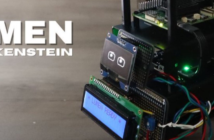A newly established political entity, known as “The Other Party,” is seeking to transform the landscape of British politics by leveraging blockchain technology. The party, which positions itself as neither right nor left, is on a mission to redefine the democratic process by enabling direct citizen participation in legislation and political decision-making, circumventing traditional political structures.
Founder Dom Ryder envisions a political landscape where centralized power is wrested from the hands of politicians and returned to the people. The party’s website boldly declares its objective: the removal of politicians from the political sphere, advocating for a system where the public directly shapes policy decisions. The party sees an opportunity to revitalize democracy in the UK, especially in contrast to what it perceives as a lack of vibrancy within the walls of Westminster.
In this envisioned future, blockchain plays a pivotal role. The party proposes a system where every vote is not only heard and counted but also ensures transparency and incorruptibility in decision-making. This radical shift implies citizens casting votes through a dedicated app, a prospect made feasible in today’s digital era.
While the idea of a digital democracy app is appealing, the party acknowledges the risks associated with digital elections, including manipulation, vote buying, and hacking. Governments have been cautious in adopting digital election procedures, sticking to the proven yet complex system of paper democracy.
To address these concerns, The Other Party plans to issue a “governance passport” on the blockchain, likely in the form of an NFT or another token. Eligible voters would acquire this passport through a “Proof of Residency” mechanism, ensuring anonymity while establishing eligibility. The party emphasizes that no personal details are stored on the blockchain.
However, transparency and auditability are crucial for the success of such a system. Questions arise about the possibility of obtaining multiple tokens, the verification process, and the potential for token trading. The party recommends using wallets like Metamask, indicating that the tokens operate on the Ethereum blockchain.
The governance passport not only enables secure and anonymous voting but also facilitates the submission of suggestions and casting of votes on the blockchain. While the infrastructure and voting mechanisms have been built, the issuance of governance passports precedes the launch of the electoral system later in the year.
To fund its ambitious project, The Other Party calls for volunteers and donations. Contributors receive a “Proof of Donation” (POD) token on the Ethereum blockchain, tradable for other tokens. The party transparently provides the smart contract address for the POD on its website, signaling a commitment to openness.
Founder Dom Ryder, a blockchain developer with a background in creating and investing in blockchain games, brings technical expertise to the project. However, the magnitude of reinventing democracy poses challenges, especially considering potential opposition from the political establishment.
Despite uncertainties, The Other Party aims to bring its vision to the public, offering proof-of-concepts. While federal or parliamentary adoption may be a distant goal, the party suggests exploring blockchain-based direct voting for local or regional decisions as a stepping stone toward a more participatory democracy.
This week, Jamie Dimon, CEO of JPMorgan, advised Senator Elizabeth Warren that the government should consider shutting down cryptocurrencies due to their ability to circumvent government regulations. Dimon emphasized the challenge posed by cryptocurrencies in evading government controls.



